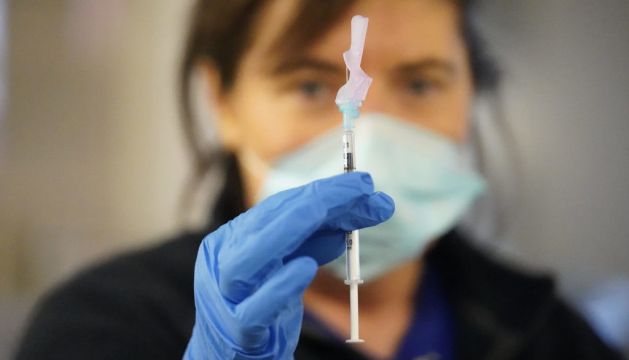More will be known about the transmissibility of the Omicron variant “within days”, global health leaders said.
Dr Maria Van Kerkhove, Covid-19 technical lead at the World Health Organisation (WHO), said it is still “very early days” in terms of understanding the new variant, but said information is coming in daily.
The Omicron variant has been reported in 23 countries, according to the WHO.
Speaking at a press briefing, Dr Van Kerkhove said: “We don’t have all the information yet on transmission in terms of if there is a fitness advantage, if it’s more transmissible.
“There is some suggestion of that, but again it’s early days. We expect to have more information on transmission within days, not necessarily weeks, but in days.”
She said they have seen reports of Omicron cases which “go from mild disease all the way to severe disease”, but said it is still early days.
“It is certainly possible that one of the scenarios is that the virus, as it continues to evolve, may still have a fitness advantage, meaning that it can become more transmissible, more transmissible than Delta, we’ll have to see.
“But we don’t know quite yet about the severity.”
She added: “Everything that we can do for Delta which is dominant worldwide, needs to be applied and strengthened for Omicron.
“So however this unfolds, the way that we act now, the decisions that are taken now in every country, will benefit however Omicron unfolds.”
Booster jabs
Meanwhile, the global health experts said there is a lack of evidence to support offering Covid-19 booster jabs to an entire population.
Dr Mike Ryan, executive director of WHO’s health emergencies programme, said he is not aware of any evidence that would suggest offering booster jabs to the entire population gives any greater protection to healthy people.
Asked about the acceleration of booster programmes in Europe, he told the press briefing: “The primary objective, I think of all governments, now must be, in the face of Delta and Omicron and others, is to ensure that all vulnerable individuals, people of older age, people with underlying conditions, are immediately offered the vaccine to ensure that everyone has had at least a primary course of vaccine.
“There are others here who can better answer than me regarding the benefits of a booster regarding other variants, but right now there is no evidence that I’m aware of that would suggest that boosting the entire population is going to necessarily provide any greater protection for otherwise healthy individuals against hospitalisation or death.
“The real risk of severe disease, hospitalisation, and death lies in particularly at risk and vulnerable individuals who do require protection against all variants of Covid-19.”
He said having excess amounts of vaccine and deciding what to do with it is not a problem being faced by many countries around the world who are struggling to get even one jab to their most vulnerable.
First jab focus
Dr Soumya Swaminathan, WHO’s chief scientist, said the focus should be on people who have not yet received a first jab, rather than on giving booster jabs.
Speaking at the press conference, she said: “I just want to reiterate what was just said, that our goal should be really to protect those who have not yet received their primary cause of vaccination.
“And this is true in all countries.”
She added: “Some countries are doing, as a precautionary principle, providing additional doses to people because they have adequate supplies, and they’re just doing it.
“There isn’t a whole lot of evidence that everybody over the age of 18, or for that matter above any age, is going to benefit from this.

“So what we really need is the data to come in from many countries using different vaccines, different demographics, different populations, and coverage, and also different variants at different times during the year to have a comprehensive view on when boosters are going to be needed, which subgroups of people they’re going to be most useful and which vaccines should indeed be used.”
Boris Johnson said all adults will be offered a booster by the end of January.
Experts have said the expansion of the vaccine booster programme poses a “huge logistical challenge” for the NHS.







